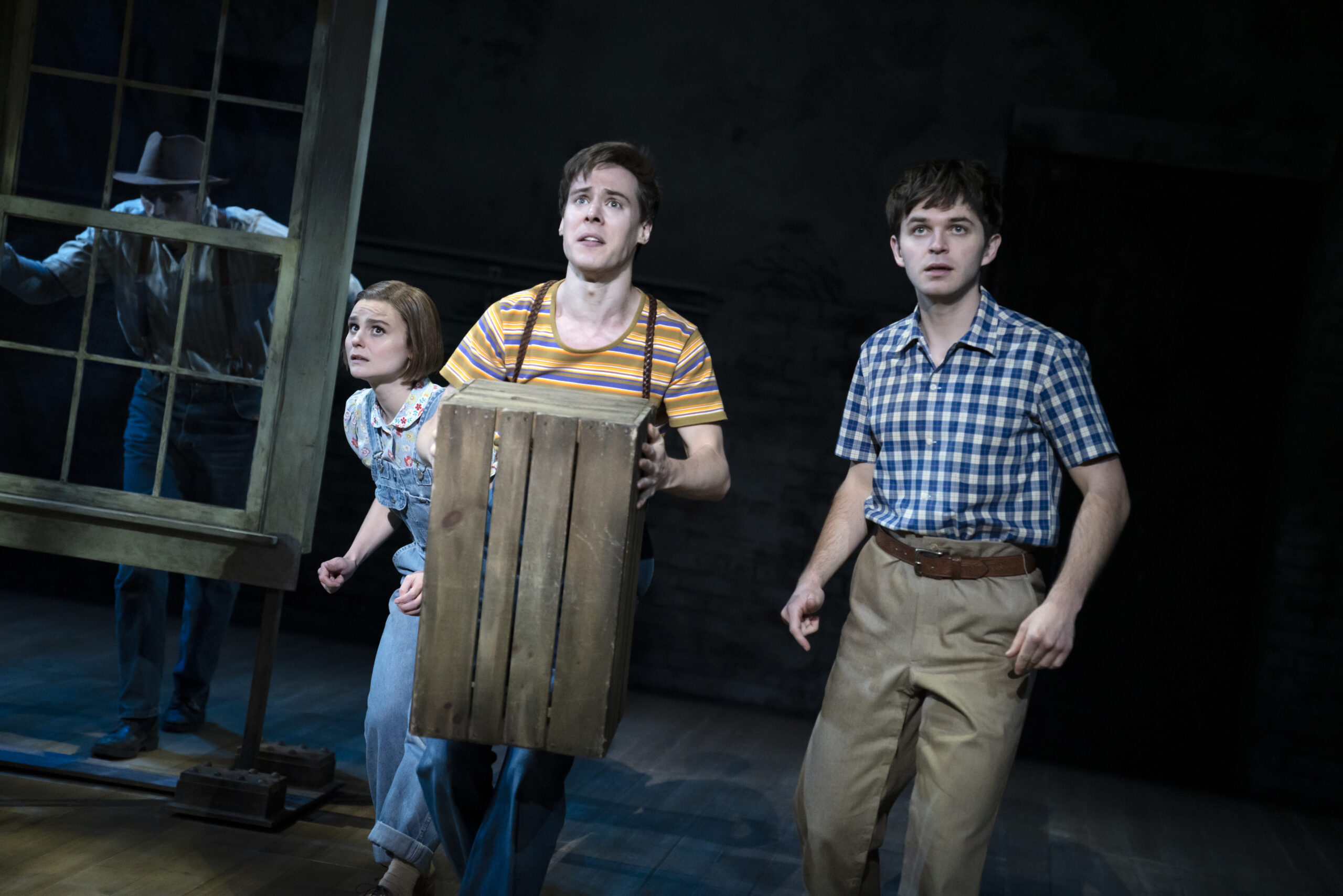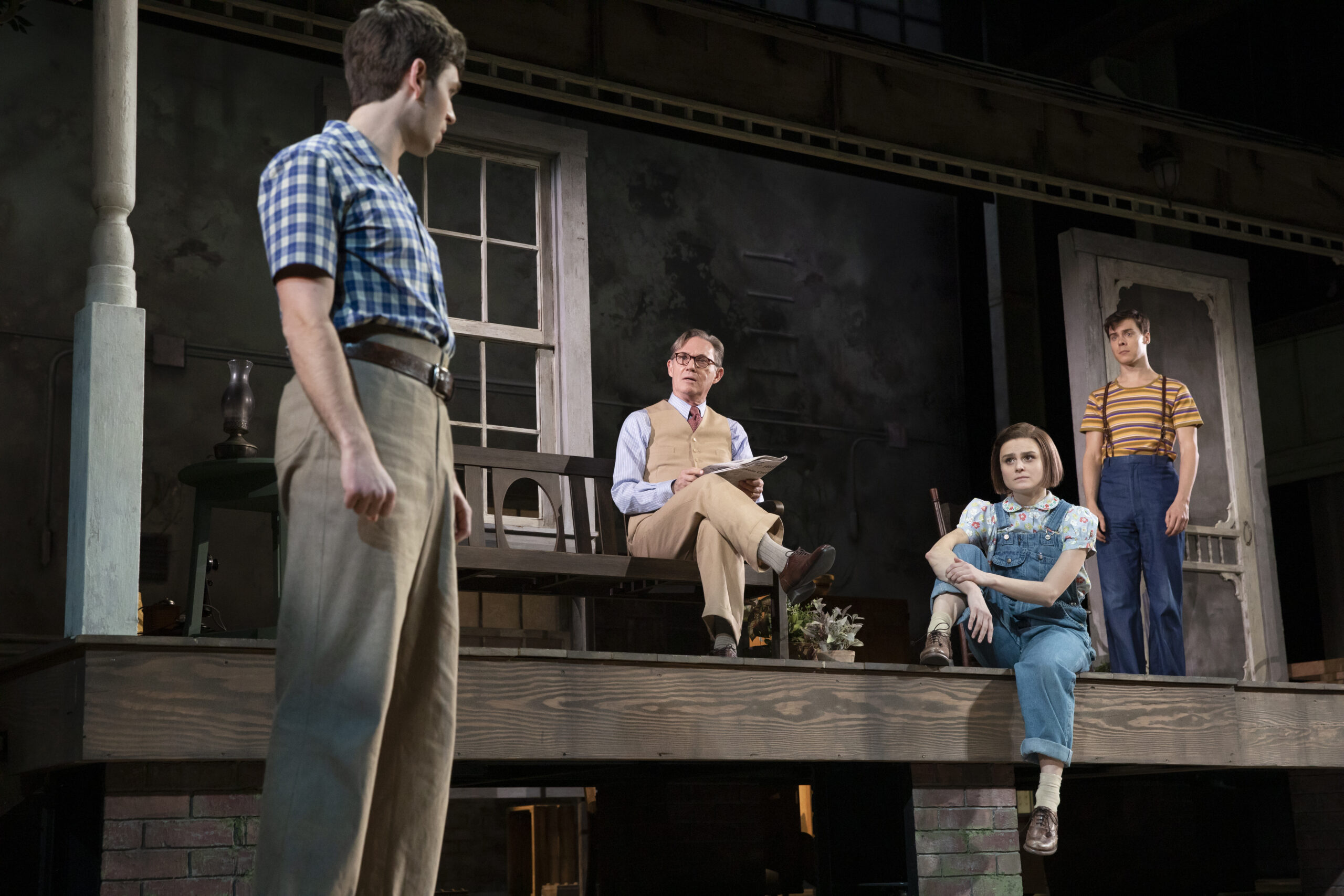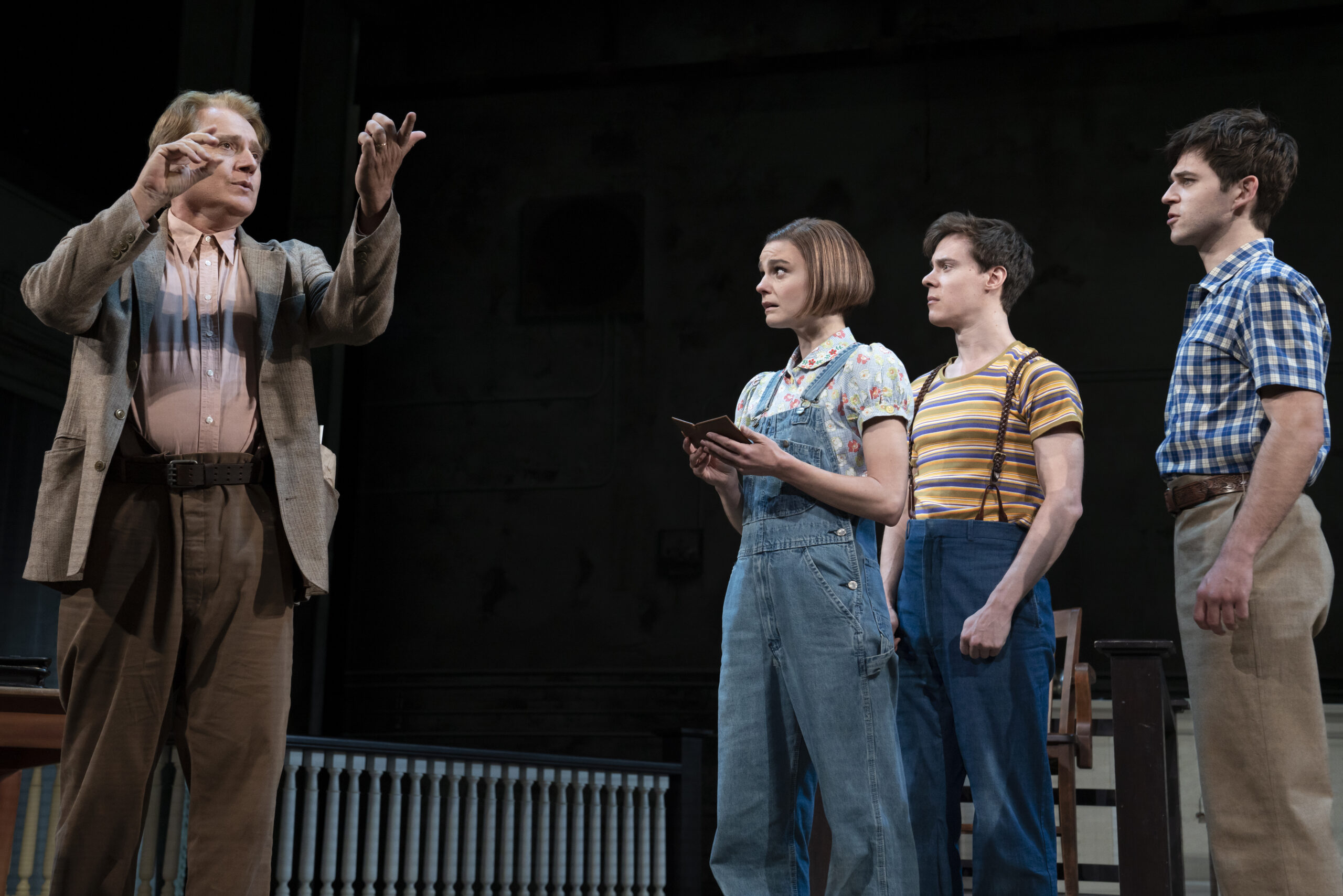
Scout, Jem ,and Dill visit Boo Radley (Photo by: TEG FOLKS)
Who: Steven Lee Johnson
What: Actor, who plays Dill in the engagement of To Kill a Mockingbird which will play at the Saenger Theater May 30 until June 4, 2023
KC: Why do you think it’s so hard for humans to spot a liar?
SLJ: I think that a lot of the lies that people tell themselves or tell other people are lies that they’ve been telling themselves for years. In some ways, human beings are more practiced at telling stories, and you could argue that lies are stories we’ve constructed about ourselves — they could be hyperbolic or completely manufactured.
Sometimes I wonder if they are a defense mechanism. Could lies be a way that we get by? A way to soothe someone else? If the truth is really painful, we don’t want to give that burden to other people. There are so many people in To Kill a Mockingbird that have to deal with lies that others think are truths and truths that people want to believe are lies, so it’s not surprising that Dill’s character is hyperbolic or exaggerates. He’s eleven, and he’s dealing with a lot of pain that’s all around him, and at that age you don’t have the same human barometer that you get when you’re older. This back-and-forth of why people tell lies is a theme in the book, and, strangely enough, for some characters the lies come from a sweet and protective place. For others, that’s not true at all.
There’s a ‘tipping point’ of sorts because when a lie destroys lives, such as the lie that Bob and Mayella Ewell tell, then there’s no goodness or moral ground to the lie. That’s different than saying you caught a fish that is bigger than it was. Dill’s idea of truth really falls somewhere in the middle because at a certain point, he gets called out on it. He has to come clean to Atticus about his upbringing, and it’s really scary. The truthful moment that Dill and Atticus share on the front porch is cathartic for him, and, in many ways, it’s cathartic for the audience.
KC: What is a story from your childhood that would be book or theater-worthy?
SLJ: The thing that keeps coming back to me is my relationship with my sister. My parents didn’t think that my mom could get pregnant, and they had adopted my sister from Korea. Then I was a total surprise.
My relationship with my sister has completely grown as we’ve gotten older, and we get more and more truthful with each other every year. I see the different ways our lives were completely the same and where things diverged. I was blind to so many of her difficulties and circumstances. As my sister and I have grown, we’ve grown closer and see where we have similarities and differences. It’s a different kind of an American story from various points of view, and I think it would be an interesting story to share.

Porch scene from To Kill a Mockingbird (Photo Credit: Julieta Cervantes)
KC: Thinking of the TKMB book and our current society, how do you think taking something from the past and bringing it into the present allows a transition or even change in the future?
SLJ: The first moment that comes into my mind is the terrible, racist tirade that Bob Ewell goes off on in his first scene with Atticus on the porch. What’s even more disturbing about that scene is that most audiences don’t know how it’s basically the only section of the play that Aaron didn’t do too much of the writing. He pulled that off of comment sections he had read. It’s the same old racist story that’s been churning for decades and decades, and while many of us, thank God, have fought and continue to fight it, not everybody has, and it’s a real threat.
Even though we are performing this story of the past, we currently have a tumultuous criminal justice system, we still have racism, and we still have people who lie and hurt others. The parallels between this play and the current world are a tough pill to swallow. We have different presentations and different machines to exhibit racism, but they are still there, and that’s why making sure we confront and challenge and change those behaviors is so important.
KC: You have played a lot of characters in your career thus far, what character in the past helped you build the character of Dill for this work?
SLJ: I did a long run playing Puck in A Midsummer’s Night Dream, and there’s a playfulness to him that I could sense in Dill since he’s this young boy in a different place and trying to fit in with new people. At first I played Puck in a somewhat mean way, but I realized there was more playfulness than evil in his character, and that comes with a lot of characters.
I think about it like kids and pranks.
Yes, the prank can look mean, but it also comes from a place of playful creativity; it’s not always a malicious place that sprouts the prank. That playful wonderment came through in Dill, and it’s strange because I didn’t have to work hard playing the character of Dill. I was a lot like him as a kid. I was extremely precocious, and Dill’s character is based off of Truman Capote, so I think there’s a queer aspect to him. I’m bisexual, I kind of knew that as a child, and it was this hidden part of me, so I could pull a lot of that from my own life and bring it to the character.
I had to trust that I could pull that from myself and show that in the carachter, and that’s one thing about this business — to get the role, you want to trust that you’re inside there. If you try to manufacture what someone else is, it doesn’t work. You have to pull that character really close to you.

Coca Cola scene from To Kill a Mockingbird (Photo by: TEG FOLKS)
KC: What do you think the position of being an outsider allows you to have that an insider could never be privy to?
SLJ: Wow, it’s crazy you asked that question because our director made this a huge part of the rehearsal process. Dill is an outsider always trying to get in. As a narrator in the trio, he’s constantly trying to find his acceptance. I think we all have our secret ways in which we feel like we’re outsiders from society; very few people really think that they fit. Whatever the mold is, there are a lot of people who know how to project that very effectively, but I’m not sure if anyone really fits. There’s something that Stephen Colbert said that always stuck to me; he said something like: Everybody has a secret name, and whatever that secret name is, they think if anyone knew my secret name, they wouldn’t love me.
I think that’s incredible to think about.
There are so many outsiders in this work. In a way, the whole audience is looking at outsiders in an insider’s world. It’s not pretty; it’s not perfect; sometimes it’s beautiful; sometimes it’s sad; and usually it’s a deeply gray area in between.
You can see Steven Lee Johnson in the role of Dill in the upcoming engagement of To Kill a Mockingbird, which will play at the Saenger Theater May 30 until June 4 as part of the 2023 Broadway in New Orleans season presented by Entergy.
 NOLAbeings Multimedia artist Claire Bangser created NOLAbeings as a portrait-based story project that marries...
NOLAbeings Multimedia artist Claire Bangser created NOLAbeings as a portrait-based story project that marries...  Voodoo in New Orleans: Reviving history: New Orleans fortune telling This article takes a deep dive into the history of Voodoo in New Orleans, its hybridization with Catholicism, and its present-day place in the city's culture. The author visits fortune-tellers in the French Quarter, using their guidance as a tool for introspection rather than a deterministic predictor of the future. Through her experiences in New Orleans, the author feels a mystical connection to both the past and the future.
Voodoo in New Orleans: Reviving history: New Orleans fortune telling This article takes a deep dive into the history of Voodoo in New Orleans, its hybridization with Catholicism, and its present-day place in the city's culture. The author visits fortune-tellers in the French Quarter, using their guidance as a tool for introspection rather than a deterministic predictor of the future. Through her experiences in New Orleans, the author feels a mystical connection to both the past and the future. 